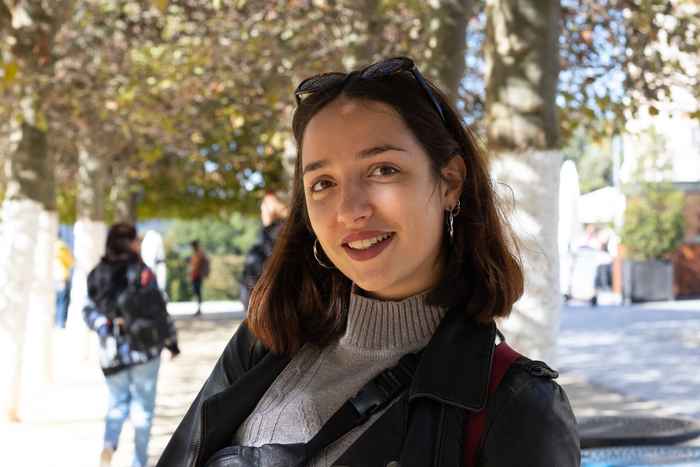Elvire Sarton-Lohéac BSc (Biology)

Gaining knowledge in law, sociology and psychology made me realize that I liked the criminology field, but I was missing science reasoning and application. Thus, the Forensic Science master became self-evident, and I applied even though I was still in the criminology master’s program. Looking back to this, I acknowledge how much this year was beneficial for me to understand even better the multidisciplinary topics covered within the MFS. Indeed, between all the students’ different backgrounds, and all the various courses taught, each one of us is pushed to be open minded and willing to learn from others. This interdisciplinarity remains for me one of the biggest assets of this program, making it both unique and intriguing.
Starting at the University of Amsterdam, I learned appropriate forensic science reasoning, how to communicate pertinently as a forensic expert to diverse publics and gain the ability to extract relevant aspects/tools/methods of a scientific discipline to forensically apply it. Of course, practice and experience will improve the basics learnt during the programme, but a solid framework is already set to guide us and prepare the aspiring forensic scientists that we are. Lecturers and guest lecturers from various backgrounds are all very willing to transmit their experience and understanding of their field. This provides us with an extensive panel of potential job positions and career paths. Moreover, each student is able to contribute and help others in their own field, making both lectures and group projects interactive. Lastly, scientific disciplines are dominant in the programme, but other courses are taught to widen our knowledge, such as criminal law, logic, or ethics.
For the second year’s research project, I am going to the University of Lausanne, thanks to the collaboration between this university and the UvA. I don’t know the exact content of the project but I’m excited to learn how to apply my knowledge in biology and challenge my forensic reasoning. Even if my career plans are still blurry, one of my options would be to become a forensic advisor, being a link between life science scientists and lay people, within the criminal justice system.